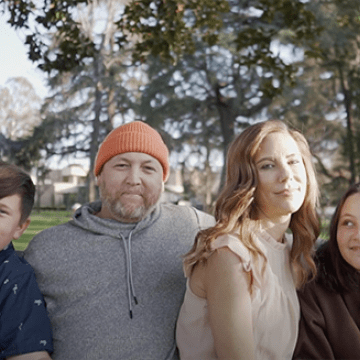Advance Directives: Plan Today For Tomorrow
It can be hard to talk about, but there is a question each of us should consider: What happens if I am not able to speak for myself when it comes to my own medical decisions?
Without an advance directive, those decisions have to be made by somebody else. That usually means family members and doctors who may not be clear about what your medical decisions might be. Sometimes, they may disagree with one another or even with your wishes.
By filling out an advance directive, you are wisely planning today for what may happen tomorrow. By making your wishes known, you’re removing any doubt or confusion about crucial medical decisions that may have to be made in the future. It also shows your concern for loved ones by freeing them from the stress of making what may be difficult choices.
Click here to connect with virtual volunteers
What is an advance directive?
An advance directive is a written instruction telling your family and health care team what you want done in case you have a serious illness or injury and cannot speak for yourself.
You might choose to have your advance directive contain only a few instructions about your care, or it may name a person to make decisions on your behalf. Or it can be very detailed, clearly explaining the kinds of life-sustaining treatments you would accept or refuse in certain circumstances.
Advance directives are for patients of every age and health status
If you think an advance directive is only for older adults or those who are seriously ill, you’d be surprised. People of every age and health status fill out advance directives, even before routine procedures, to protect their health care wishes. Some patients even update them over the years as they go through different life events and health issues.
Protect your wishes — and your loved ones

Your advance directive guarantees you are the one making the decisions about what treatment or care you receive. Not anybody else. You’re making sure your voice is heard and your values are honored by your loved ones and your health care team.
The directive also frees the people you care about from the stress and anxiety of having to make a critical choice about your medical treatment. In fact, patients and their families have been shown to suffer much less stress and anxiety with medical decisions when an advance directive has been made.
Having the advance directive makes me feel very secure about my needs being met.— Julie, City of Hope patient
What steps do you take to complete an advance directive?
- First of all, think about how you want to live, what quality of life means to you, what medical care you would or would not want, and what you would want your health care team and loved ones to know if you weren't able to speak for yourself.
- Share this with the people that are important to you.
- Talk to your health care team about your wishes. A clinical social worker or patient navigator can then:
- Answer your questions about advance directives.
- Help you fill out your advance directive.
- Make an appointment for free notary services at City of Hope.
- File a copy of your advance directive in your medical record.
- When your advance directive is complete, keep it in a place that's safe but easy to get to.
- Let your medical decision maker know where your advance directive is located.
Fill out an Advance Directive online today
PREPARETM is a program with a step by step way to complete your Advance Directive. It has easy to read tools, videos and information to help you learn how to share your wishes on the Advance Directive form and talk to your medical team and loved ones. It is all done online. PREPARE will have the latest AD form versions.
You can also fill it out online in English | Spanish and download Chinese, Armenian and other languages.
If you have additional questions about advance directives, please call City of Hope's Duarte Biller Patient and Family Resource Center at 626-218-CARE (2273) or City of Hope Orange County's Biller Patient and Family Resource Center at 949-671-4121.
